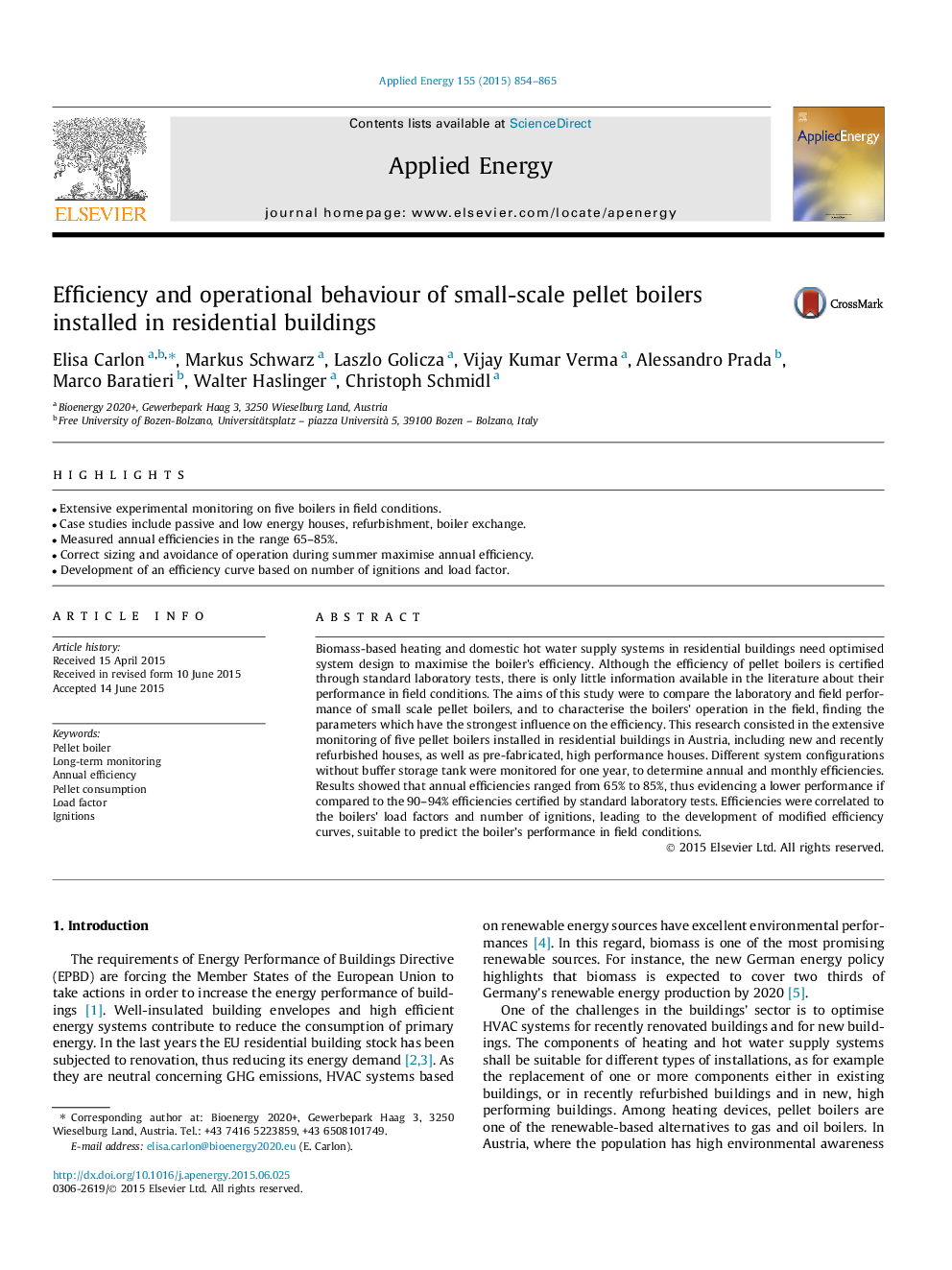| Article ID | Journal | Published Year | Pages | File Type |
|---|---|---|---|---|
| 6686683 | Applied Energy | 2015 | 12 Pages |
Abstract
Biomass-based heating and domestic hot water supply systems in residential buildings need optimised system design to maximise the boiler's efficiency. Although the efficiency of pellet boilers is certified through standard laboratory tests, there is only little information available in the literature about their performance in field conditions. The aims of this study were to compare the laboratory and field performance of small scale pellet boilers, and to characterise the boilers' operation in the field, finding the parameters which have the strongest influence on the efficiency. This research consisted in the extensive monitoring of five pellet boilers installed in residential buildings in Austria, including new and recently refurbished houses, as well as pre-fabricated, high performance houses. Different system configurations without buffer storage tank were monitored for one year, to determine annual and monthly efficiencies. Results showed that annual efficiencies ranged from 65% to 85%, thus evidencing a lower performance if compared to the 90-94% efficiencies certified by standard laboratory tests. Efficiencies were correlated to the boilers' load factors and number of ignitions, leading to the development of modified efficiency curves, suitable to predict the boiler's performance in field conditions.
Related Topics
Physical Sciences and Engineering
Energy
Energy Engineering and Power Technology
Authors
Elisa Carlon, Markus Schwarz, Laszlo Golicza, Vijay Kumar Verma, Alessandro Prada, Marco Baratieri, Walter Haslinger, Christoph Schmidl,
